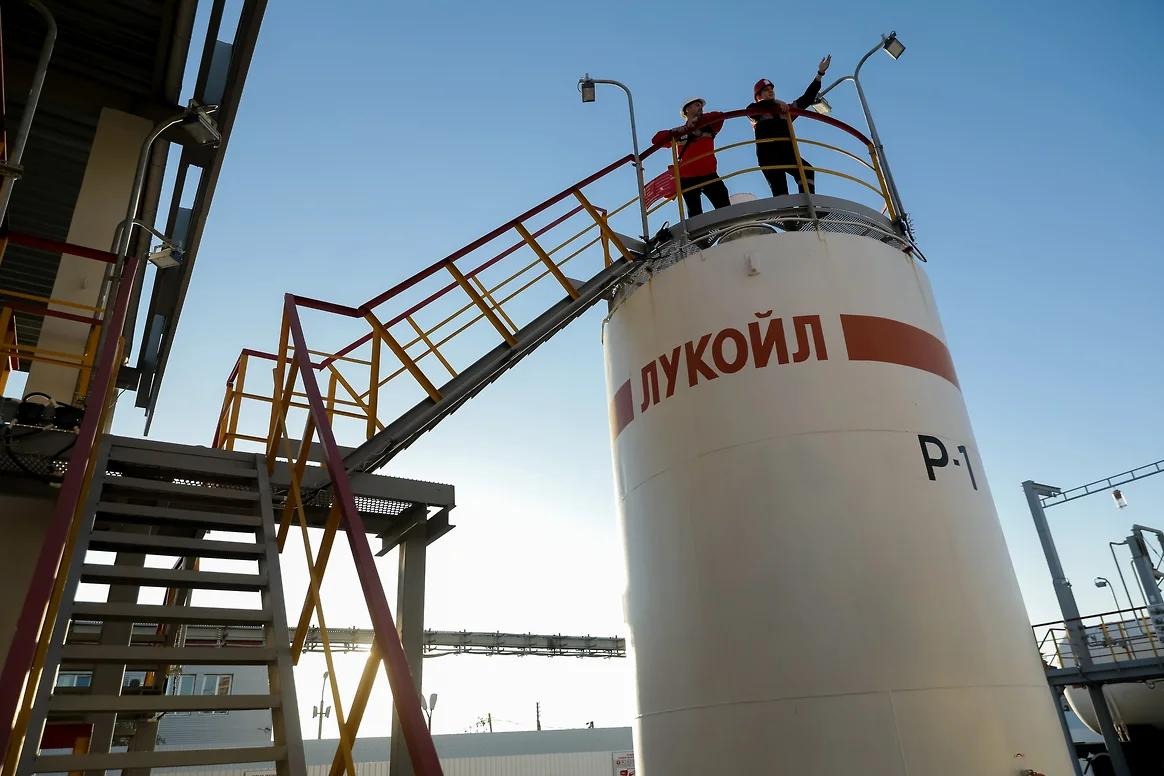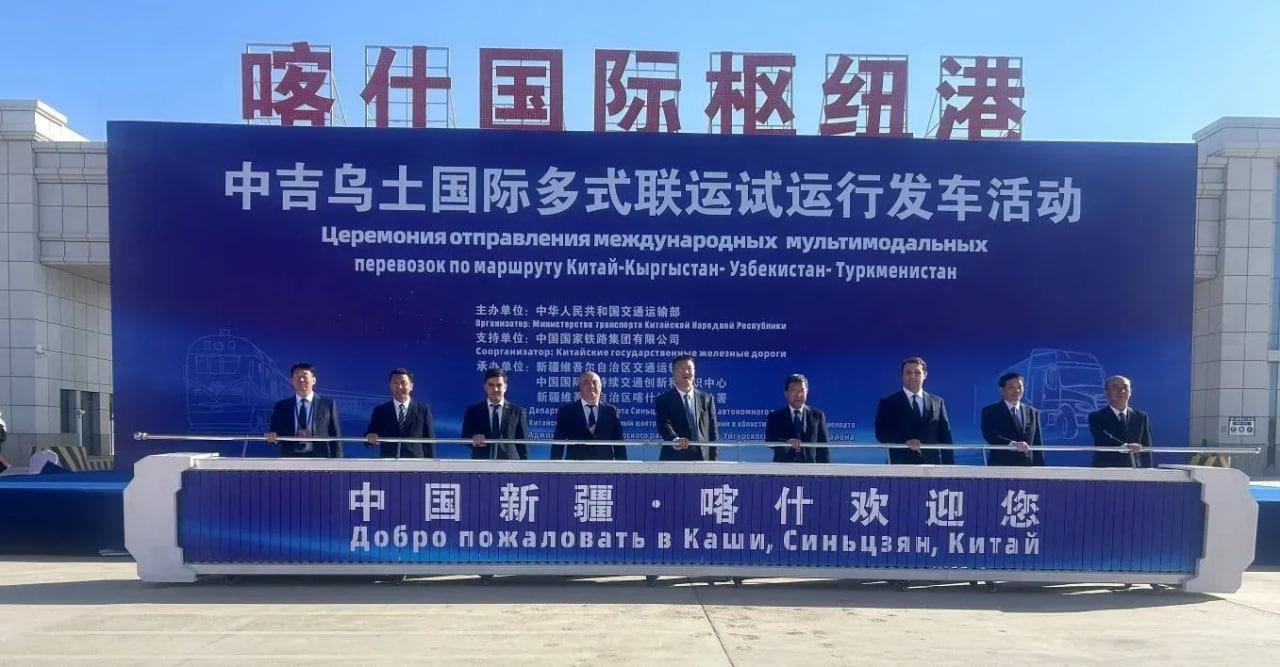UKRAINIAN, KAZAKH OFFICIALS DISCUSS BILATERAL TRADE AND SINGLE ECONOMIC SPACE
UKRAINIAN, KAZAKH OFFICIALS DISCUSS BILATERAL TRADE AND SINGLE ECONOMIC SPACE
Experts in Kazakhstan had wondered if economic and political relations between Kazakhstan and Ukraine would diminish after Viktor Yushchenko became president of Ukraine. But Ukrainian State Secretary Alexander Zinchenko’s March 3 visit to Astana dispelled this pessimism. Moreover, the Ukrainian guest assessed his first trip to the Kazakh capital as “very satisfactory” and added that “the content of Nursultan Nazarbayev’s [recent] address to the nation goes beyond the bounds of a national or regional document.” According to Zinchenko, the ideas Nazarbayev expressed in his address to the nation “testify to the parallel political and economic courses of the leadership of our countries” (Ekspress-K, March 5). In fact, these brief phrases, while soothing to the presidential entourage, were the only statements by the Ukrainian Secretary that the Kazakh political elite could cite to declare the visit a success.
In his talks with Vladimir Shkolnik, minister of energy and mineral resources, and Adilbek Zhaksybekov, the head of the presidential administration, Zinchenko never brought up the thorny political aspects of bilateral ties and instead focused on economic issues. At a news conference held after the talks with Kazakh officials, the Ukrainian State Secretary said that the sides discussed a wide range of issues related to energy problems, joint development of the Tengiz oilfields in Kazakhstan, tariffs, and a common free-trade zone. Stressing the importance of Kazakh investment in the Ukrainian economy, particularly in railway and maritime communication, Zinchenko highly praised the potential of Kazakhstan’s banking sector (Liter, March 5).
After the political turmoil of the past months, the Ukrainian leadership is now refocusing its attention on the country’s energy needs and actively seeking partnerships with other former Soviet republics, brushing aside political considerations for the moment. The topic of joint projects in the energy sector dominated the February 28 meeting between Yushchenko and Georgian Prime Minister Zurab Nogaideli. Kazakhstan could develop a lasting partnership with Ukraine in this endeavor, resuming its participation in the Odessa-Brody pipeline project as first discussed under former Ukrainian President Leonid Kuchma.
Yushchenko made an encouraging gesture when he revealed his country’s plan to offer the Odessa-Brody pipeline for the transit of oil and gas from the Middle East and discuss this project “with other countries including Turkmenistan and Kazakhstan” (Interfax-Ukraine, March 1). Ukraine’s great challenge is to secure contracts to satisfy the pipeline’s full capacity: 14 million tons of oil annually. However, the project could deliver Kazakhstan’s oil to Europe, presumably to the Polish seaport of Gdansk via Ukraine. However, it is not yet certain whether Kazakh oil producers, with so many pipeline routes at hand and a dilapidated oil infrastructure, would be able to produce that amount of oil so that the pipeline could operate at full capacity. Nevertheless, the Kazakh side showed its readiness to help Ukraine create its “energy corridor” (Ekspress-K, March 5).
The one area of bilateral cooperation that shows clear signs of steady development is trade. Last year the two countries posted a trade volume of $1 billion, a 30% increase from the level in 2003. Although the possibility of creating a free-trade zone within the Single Economic Space, once actively supported by Kuchma, was hard to avoid during the talks, Zinchenko remained cool to the idea of the semi-defunct Single Economic Space.
Obviously, this issue will re-appear when Ukrainian Prime Minister Yulia Tymoshenko arrives in Astana in April to finalize bilateral economic relations.
In contrast to the tight-lipped Zinchenko, Kazakhstan’s ambassador to Ukraine and Moldova, Amangeldy Zhumabayev, told a Ukrainian journalist that the Single Economic Space, “ardently supported by our President, facilitates the free flow of goods, services, and the workforce in post-Soviet states.” He mentioned two promising areas of bilateral cooperation, including joint development of the oil and gas industry and construction of new oil refineries, and he dismissed “Kuchmagate” and “other gates” related to top-level corruption scandals in both countries as “dirty methods” used by “certain persons and companies” (Dialog.ua. March 7).
Despite the apparent optimism of Kazakh diplomats who are skilled in camouflaging the unseemly sides of interstate relations, many observers are deeply skeptical about the prospect of the Commonwealth of Independent States, not to mention the Single Economic Space, which is now hanging by a thread. They hold “troublemakers” Ukraine and Georgia responsible for the impending fall of the CIS, refusing to recognize the fact that Ukraine has never signed the CIS charter. Infuriated by remarks from an official of the Ukrainian Foreign Ministry, who said that the CIS had no future as a political structure, the Executive Director of the CIS, Vladimir Rushailo, retorted: “That’s a rhetorical question, and there is no need to comment on that” (Aikyn, March 4). Apparently, even such a staunch defender of the CIS as Rushailo sees his last hopes of reviving the old union floating away with the Ukrainian orange tide.


